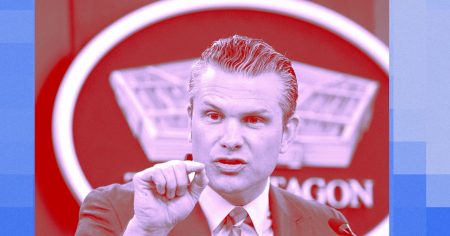Recruitment and hiring have undergone a profound metamorphosis over the last decade, driven by changing paradigms in business, technology and workforce dynamics. These changes have made it pivotal that organizations reevaluate and adapt their hiring practices.
As experts, the members of Forbes Business Council have made plenty of alterations to their hiring practices. Below, 20 of them share specific changs they have made over the last 10 years to their human resources department and recruitment efforts. Read on to learn more about the motivations driving these changes and the impact they have had on both employers and job seekers alike.
1. Add Panel Interviews And Real Job Tasks
The list is long! On top of adding panel interviews and personality tests, we began having applicants do a real task that would be done on the job. It could be a PowerPoint presentation or an Excel test. For customer experience candidates, we may have them respond to a customer’s question. For candidates for specific roles, we have had them create 30-60-90 day forecasting reports so that we can see how they are critically thinking about the role. – Marya Khalil-Otto, VI Peel
2. Respond Promptly To All Applications
Respond within three business days to all applications received, no matter what. Being a fast-growing remote company means we get inundated with applications—which are easy to ignore. However, we have found that responding to applicants within a few days of applying maximizes the engagement of potential team members and makes the entire process run smoother with momentum. Just respond! – Maurice Harary, The Bid Lab
Forbes Business Council is the foremost growth and networking organization for business owners and leaders. Do I qualify?
3. Aim To Understand Their Life Story
We’ve more or less stopped asking super basic questions and now aim to understand the person’s life story. This includes how their past work or experiences have impacted their lives, their future dreams and careers and whether they align with our core values and business goals. This has helped us to find and cultivate a small workforce of individuals who love the company. – Danni White, DW Creative Consulting Agency
4. Only Ask Important Questions
This is not necessarily a change but it is something that has been very effective over the last 25 years. I interview the top five candidates, and my interview style and duration is a very relaxed 1.5 hours. I ask only important questions, and when they start answering, I shut up. I ask them to tell me about a time when they got angry at work and to describe a crisis that they have been involved in. – Robert M. Donaldson, Collaborative Strategies Consulting Inc.
5. Remove Language That Excludes Candidates
We made changes on the front end of the experience by scrubbing language from our job descriptions that could inadvertently exclude applicants. For example, “work hard, play hard” is a phrase businesses use to mean a strong work ethic but it may alienate women candidates. We also don’t require a certain degree when equivalent work experience is a stronger indicator of skills. – Delphine Carter, Boulo
6. Assess The Candidate’s Writing Ability
I’ve learned that our organization can teach many things, from strategy to client service, but we can’t teach the basics of writing. We have found ways to assess writing through the hiring process and developed ongoing support to enable continued learning and refinement. – Nell Callahan, Frontwood Strategies
7. Ensure HR And Business Leaders Are Aligned
It’s vital to have human resources and business leaders totally aligned in all hiring. While HR is a critical partner, there are also times when a business leader needs to lean into what they strongly desire. – Geoffrey Roche, Core Education PBC
8. Hire Based On Core Values
We placed a focus on hiring based on our core values. Resumes can tell us a lot about job experience, but hiring a person who doesn’t fit our company culture can be a costly mistake. We use a third-round informal “meet up” style interview to see how they interact with the rest of the team. We then seek the team’s input on the final hiring decision. – Melissa Johnson, E3 Coaching LLC
9. Focus On The Ability To Learn New Things
In recent years, while interviewing candidates, I have focused on their ability to learn new things quickly and adapt to the rapidly evolving business rather than their experience. Experience is essential, yet the critical trait leading to success is the ability and desire to learn and adapt. With the widespread use of artificial intelligence, having a growth mindset and learning ability have become even more crucial. – Gaidar Magdanurov, Acronis
10. Screen For Soft Skills
I changed the candidate screening process to focus not just experience, but also on soft skills. Skills like the ability to follow instructions, think critically and an attention to detail can be developed. However, candidates need a minimum level of these skills for success. Testing during the hiring process will prevent hiring mismatches. – Raquel Gomes, Stafi
11. Run Employment Trials
One thing we’ve done is never trust a resume. We hire our potential new employees on a trial basis and pay them well. Within one week, we will know proof positive whether they are capable of doing a job proficiently or not. – Tammy Sons, Tn Nursery
12. Focus On Goal-Oriented Hiring
Over the last decade, a crucial change in my hiring practices has been prioritizing candidates that are aligned with the goal of the company rather than just the company itself. Goal-oriented hires are catalysts in achieving the mission while others may function as regular employees. This shift ensures we’re building a focused and driven team, which contributes to our overall success. – Harsh Patel, Water and Shark
13. Allow Opportunities For ‘Bleisure’
The term “bleisure” refers to combining business travel and pleasure. Employees are demanding this newfound flexibility to work their way, but as a business, you need to “pick your battles” and offer work conditions that reasonably fit with your business model. Bleisure is here to stay; therefore, it is a suitable time to consider incorporating blended travel into your travel policy. – Anna Stella, BBSA
14. Conduct Structured Interviews
Conducting structured interviews is one of the most important ways we have changed our hiring practices in the last ten years. Doing this has helped maintain consistency, reduce bias and allow for better comparison between candidates. – Tomas Keenan, Step It Up Academy
15. Prioritize Behavioral Interviewing
In the last ten years, I’ve prioritized behavioral interviewing in my hiring practices. I made this change because traditional interview questions often fail to reveal how a candidate behaves in real-world situations. By asking candidates to describe past job experiences and how they handled specific situations, I can better assess their skills and potential for success. – Matthias Walter Eser, ESER Capital Vermögensverwaltung GmbH
16. Slow Down The Hiring Process
We’ve slowed down our hiring process significantly. We take ample time to vet every candidate before signing them on officially. In fact, we often run paid trials, like paying candidates a fee to write a blog post for a client, before making our final decision. This has helped us find the best individuals for our client’s needs and company culture. – Emily Reynolds Bergh, R Public Relations Firm
17. Use Word-Of-Mouth
I rely on word of mouth. The peers you respect—and even competitors—are the best source for candidates, especially in a tight market. – Daniel Astin, Ciardi Ciardi & Astin
18. Analyze Behavioral Profiles
I heavily rely on behavioral profiles to pinpoint candidates who align best with the specific roles. By doing so, I ensure that people’s innate talents are used to their full potential. It also fosters a climate of trust, as the team knows they’ve been placed where they can truly shine. Trust me, when people work in roles that naturally fit them, magic happens. – Amiee Ball, JAB Consulting Group
19. Make Sure Your Candidates Represent You Well
We’ve become laser-focused on the 360-degree candidate view. We now ensure potential candidates are not only qualified to do the work, but also align with the company’s culture and core values. On customer sites, our employees are a walking billboard for our company, so we want to ensure they represent us well. – Venus Quates, LaunchTech, LLC
20. Place More Emphasis On Cultural Fit
We are now placing more emphasis on the candidate’s personality, dedication, loyalty and alignment with company culture. When faced with a choice between two candidates—one with better knowledge and the other with a better cultural fit—we opt for the latter. Why? Because we understand that building a business is a marathon, not a sprint. Skills can be learned, but personality remains constant. – Denys Grabchak, Performetry
Read the full article here










